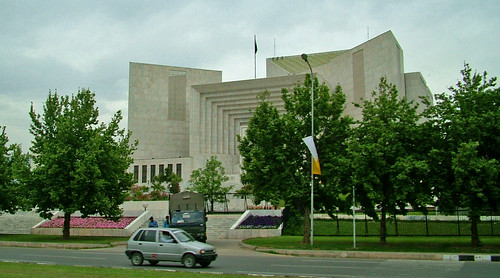Supreme Court unanimously rules to keep Trump on Colorado ballot
Supreme Court #SupremeCourt

The US Supreme Court is pictured January 4 in Washington, DC.
Drew Angerer/Getty Images
The Supreme Court signaled in early February that it was poised to back former President Donald Trump and fend off a blockbuster challenge to his eligibility to appear on Colorado’s ballot.
During about two hours of arguments, the high court’s conservative justices peppered the lawyers representing Trump’s challengers with a series of questions that suggested they were seeking a way to side with the former president – most likely based on reasoning that doesn’t address the question of whether he is or isn’t an insurrectionist.
Even some members of the court’s liberal wing posed difficult questions to the lawyers opposed to the former president.
Here are key takeaways from the oral arguments:
Conservatives suggest several ways to side with Trump: Throughout the course of the arguments, the court’s conservatives repeatedly questioned whether the insurrection ban was intended to apply to former presidents and whether the ban could be enforced without Congress first enacting a law. Others delved into more fundamental questions about whether courts removing a candidate from the ballot is democratic. “Your position has the effect of disenfranchising voters to a significant degree,” conservative Justice Brett Kavanaugh said in one of the more striking exchanges with attorneys. If Trump is removed from the ballot in Colorado, Chief Justice John Roberts predicted that states would eventually attempt to knock other candidates off the ballot. That, he signaled, would be inconsistent with the purpose and history of the 14th Amendment.
Jackson and liberals have tough questions for challengers: Another sign that the court was leaning toward Trump’s position: Even some of the liberal justices posed difficult questions to the lawyers representing his challengers. Notably, Justice Ketanji Brown Jackson, a Joe Biden nominee, said that the 14th Amendment provision did not include the word “president,” even though it specifically listed other officials who would be covered, such as members of Congress. That is a central argument Trump’s attorneys have raised in the case. “I guess that just makes me worry that maybe they weren’t focused on the president,” Jackson said. Justice Elena Kagan questioned the implications of a single state banning a candidate in a presidential election.
Justices didn’t focus on Trump’s January 6 actions: The nine justices spent little time on the former president’s actions surrounding the January 6 attack on the US Capitol that sparked the ballot challenge in Colorado and elsewhere. There were more questions, in fact, about the Civil War and how the insurrectionist ban in the 14th Amendment of the Constitution was enacted in order to grapple with confederates who fought against the Union.